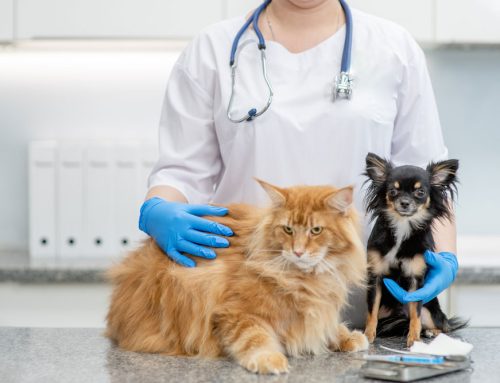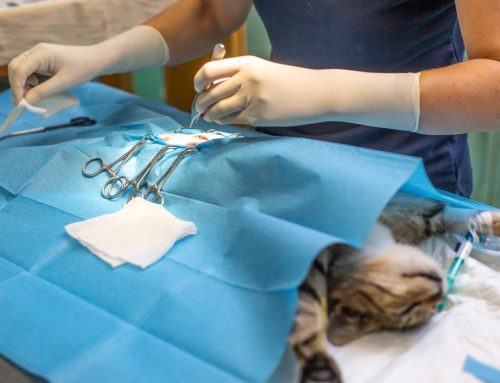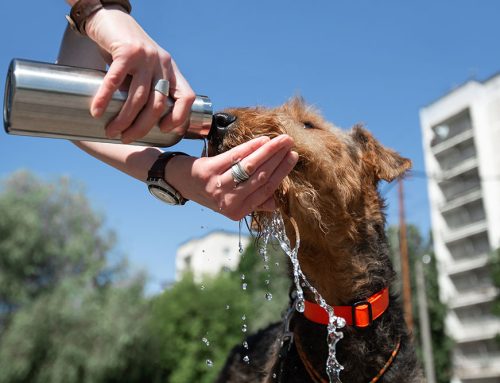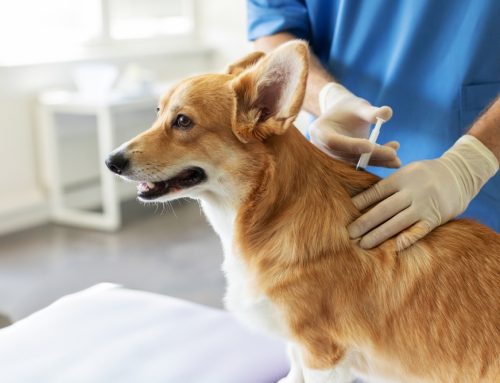Understanding Stress and Anxiety in Pets: Signs, Causes, and Solutions
At Sixes Animal Hospital, we recognize that your pet’s emotional health is just as important as their physical well-being. Stress and anxiety can significantly impact your pet’s quality of life, leading to behavioral changes and even long-term health issues. Understanding the signs of anxiety and how to manage them can help ensure a happier, healthier life for your pet.
Recognizing Stress and Anxiety in Dogs
Physical Symptoms of Canine Anxiety
Dogs may exhibit several physical signs when experiencing anxiety, including:
- Trembling or shaking – Often seen in response to loud noises or unfamiliar situations.
- Excessive panting and salivation – A sign of stress that occurs even when they haven’t been exercising.
- Pacing or restlessness – Dogs may struggle to settle down or exhibit repetitive behaviors.
- Gastrointestinal upset – Diarrhea or vomiting can sometimes be stress-related.
- Changes in sleep or appetite – Sudden refusal to eat or disrupted sleep patterns can indicate anxiety.
Behavioral Changes in Anxious Dogs
Behavioral signs of stress in dogs may include:
- Destructive behaviors – Chewing furniture, scratching doors, or digging can signal separation anxiety.
- Aggression or reactivity – Some anxious dogs may become defensive, growling or snapping when they feel threatened.
- Excessive barking or whining – This can be a plea for reassurance or an outlet for nervous energy.
- Compulsive behaviors – Repetitive actions like excessive licking, tail chasing, or circling may develop.
If left unmanaged, chronic anxiety can affect a dog’s overall well-being. Learn more about Separation Anxiety in Dogs from the ASPCA.
Understanding Anxiety and Stress in Cats
Physical Indicators of Feline Anxiety
Cats express stress differently than dogs, often through subtle physical signs:
- Excessive grooming – Over-grooming can lead to bald patches or skin irritation.
- Inappropriate elimination – Urinating outside the litter box may be a sign of stress or a medical issue.
- Hiding or withdrawal – A stressed cat may retreat to secluded areas for extended periods.
- Loss of appetite – Stress and anxiety can lead to decreased food intake.
Behavioral Clues to Cat Anxiety
Behavioral changes in anxious cats may include:
- Increased vocalization – Excessive meowing or yowling can signal distress.
- Aggression towards other pets or people – Cats may lash out when they feel threatened.
- Unusual clinginess or detachment – Some cats seek constant attention, while others withdraw completely.
Chronic stress can lead to serious health concerns, such as feline idiopathic cystitis (FIC), a stress-related urinary tract condition. Learn how to make veterinary visits less stressful for your cat with these Vet Visit Tips.
What Causes Stress and Anxiety in Pets?
Common Triggers in Dogs and Cats
Stress in pets can be caused by a variety of environmental and medical factors:
- Loud noises – Fireworks, thunderstorms, and even household appliances can trigger anxiety.
- Separation from owners – Many pets struggle with being left alone for extended periods.
- Changes in routine – Moving to a new home, a new family member, or a change in schedule can cause stress.
- Veterinary visits – Some pets develop anxiety surrounding medical appointments.
- Underlying health conditions – Pain or illness can increase anxiety levels.
Understanding and addressing these triggers can help reduce stress and improve your pet’s well-being.
Managing Stress and Anxiety in Pets
When to Seek Veterinary Help
If your pet’s anxiety is affecting their daily life, seeking veterinary care is essential. Our team at Sixes Animal Hospital can assess whether your pet’s stress is behavioral or linked to an underlying medical issue. Early intervention can prevent anxiety from escalating into serious behavioral or physical health problems.
Behavioral Therapies and Environmental Changes
Creating a calm and predictable environment can significantly reduce stress:
- Provide a safe space – A quiet, designated area where your pet can retreat when they feel overwhelmed.
- Use positive reinforcement – Reward calm behavior with treats, praise, or toys.
- Desensitization and counter-conditioning – Gradually exposing pets to stressors in a controlled way can help them adjust over time.
Medication and Natural Remedies
For some pets, medication or natural supplements can help manage anxiety effectively. Options include:
- Prescription medications – Anti-anxiety medications may be prescribed for severe cases.
- Pheromone diffusers – Products like Feliway (for cats) and Adaptil (for dogs) mimic natural calming scents.
- Herbal supplements – Chamomile, valerian root, and L-theanine are sometimes used to promote relaxation.
Always consult a veterinarian before introducing any new treatments. Learn more about Separation Anxiety in Pets from the American Animal Hospital Association (AAHA).
Preventing Stress and Anxiety in Pets
Routine and Environment Management
Establishing a consistent routine helps pets feel secure:
- Keep feeding, walking, and playtime on a predictable schedule.
- Minimize sudden changes in their environment.
- Provide interactive toys or food puzzles to keep their minds engaged.
A stable environment can reduce anxiety and create a sense of security.
Socialization and Regular Exercise
Regular interaction and physical activity are essential for reducing anxiety:
- Daily walks and playtime – Helps burn off nervous energy.
- Socialization – Gradual, positive exposure to new people and pets reduces fear and stress.
- Training classes – Builds confidence and teaches coping mechanisms.

Local Support and Services at Sixes Animal Hospital
Sixes Animal Hospital supports pet owners by offering:
- Behavioral consultations – Personalized plans for managing pet anxiety.
- Local events and training classes – Socialization opportunities in a controlled environment.
- Ongoing pet wellness programs – Ensuring long-term emotional and physical health.
Understanding your pet’s anxiety is the first step toward helping them feel safe and comfortable. At Sixes Animal Hospital, we are dedicated to providing compassionate, expert care for pets experiencing stress and anxiety.
Schedule an appointment today to discuss the best solutions for your pet’s emotional health.






Leave A Comment